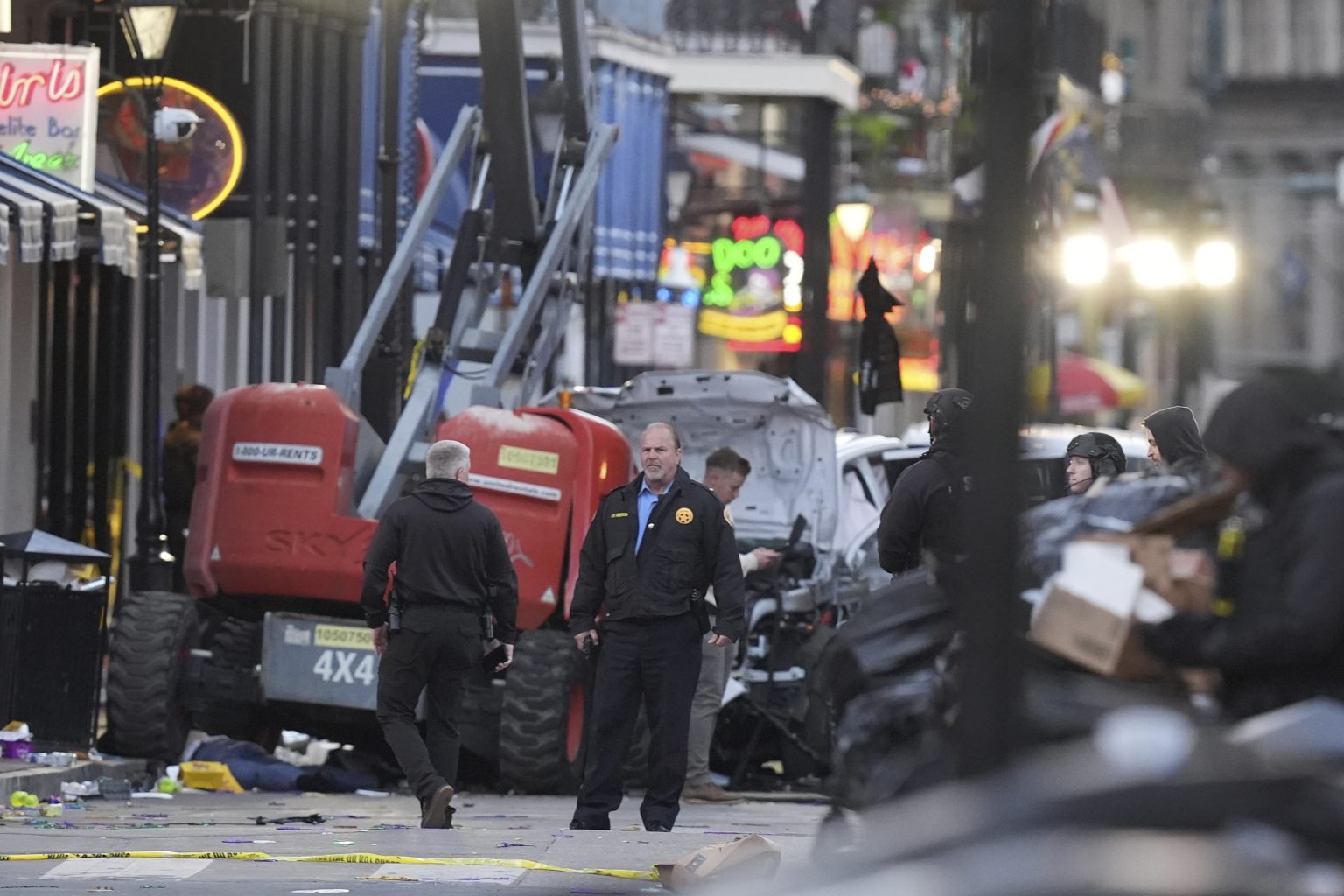The tragic incident in New Orleans, where a vehicle plowed into a crowd celebrating New Year’s Eve, has sparked a contentious debate about border security and national safety. Rep. Marjorie Taylor Greene, a controversial figure known for her outspoken views, quickly linked the incident to the concept of “wide open borders,” suggesting a causal relationship between lax immigration policies and acts of violence. Her comments on X (formerly Twitter) compared the New Orleans incident to a similar attack at a Christmas market in Germany, implying that the U.S. should expect such tragedies if it doesn’t tighten its border control. This rhetoric taps into pre-existing anxieties surrounding immigration and national security, potentially exacerbating existing divisions within the political landscape. While authorities have yet to release definitive information about the suspect’s motives, Greene’s assertions presume a connection to immigration, further fueling the ongoing debate. She also expressed distrust in the FBI’s investigation under current leadership, a sentiment echoed by some segments of the population, adding another layer of complexity to the already emotionally charged situation.
The New Orleans attack resulted in a devastating toll, claiming the lives of at least ten individuals and injuring thirty-five others. The suspect, identified only as a male, allegedly drove a pickup truck into the crowd gathered at the intersection of Canal and Bourbon Streets in the early morning hours. Following the crash, he engaged in a shootout with law enforcement, ultimately resulting in his death. New Orleans Police Department Superintendent Anne Kirkpatrick characterized the attack as “intentional,” highlighting the perpetrator’s deliberate attempt to cause harm by circumventing security barricades. The FBI has taken the lead in investigating the incident, classifying it as an act of terrorism and discovering improvised explosive devices in the vicinity. This elevates the incident beyond a simple act of violence, raising concerns about potential broader implications and the need to thoroughly investigate possible connections to extremist groups or ideologies.
Rep. Greene’s immediate response linking the tragedy to border security reflects a broader political discourse that often associates immigration with crime and terrorism. This perspective is frequently contested, with opponents arguing that such connections are unfounded and often based on prejudice rather than evidence. The incident also highlights the challenge of balancing national security concerns with individual liberties and the right to due process. Greene’s expression of distrust in the FBI’s investigation further complicates the situation, underscoring the erosion of trust in institutions and the increasing polarization of public opinion. This skepticism, while not uncommon in politically charged situations, can hinder the pursuit of justice and obstruct a comprehensive understanding of the events.
The incident has elicited reactions from various public figures, including Louisiana Governor Jeff Landry and Senator Bill Cassidy. Both expressed their condolences and called for unity in the face of tragedy. Gov. Landry urged people to avoid the affected area, while Sen. Cassidy emphasized the importance of resilience and not allowing terrorism to instill fear. These responses reflect the immediate emotional aftermath of such incidents, the need for community support, and the delicate balance between acknowledging the pain and suffering while also projecting a sense of strength and resolve. The call for unity, however, can be challenging to achieve in a deeply divided political climate, as evidenced by the divergent interpretations of the incident’s significance and its underlying causes.
The aftermath of the attack has prompted authorities to implement security measures in the affected area, restricting access to Bourbon Street and surrounding blocks. The FBI’s leading role in the investigation underscores the seriousness of the incident and the need for a comprehensive and thorough examination of all available evidence. The agency’s call for public assistance in providing information reinforces the importance of community involvement in solving crimes and ensuring accountability. The investigation will likely focus on determining the suspect’s motive, any potential connections to extremist organizations, and the origin and purpose of the discovered explosive devices. This information will be crucial in understanding the full scope of the incident and developing strategies to prevent similar tragedies in the future.
The New Orleans attack serves as a sobering reminder of the ongoing threat of violence, both domestically and internationally. While the full details of the incident are still unfolding, the immediate reactions and subsequent debates highlight the complex interplay between national security, immigration policy, and public perceptions of risk. The challenge for investigators and policymakers alike is to navigate these complexities while upholding the principles of justice, fairness, and due process. The incident also underscores the need for a nuanced and evidence-based approach to discussing these sensitive issues, avoiding generalizations and harmful stereotypes that can further divide an already polarized society. The healing process for the community and the nation will require open dialogue, empathy, and a commitment to finding common ground in the pursuit of safety and security for all.

